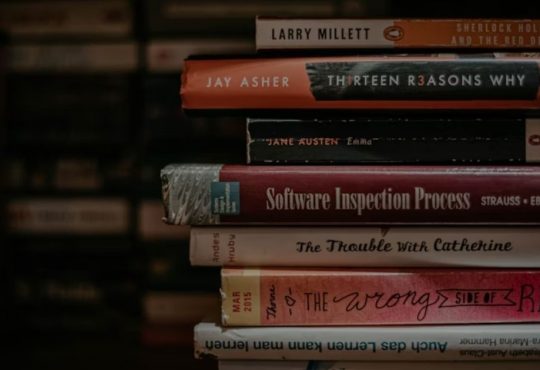Anxiety is a pervasive mental health challenge affecting millions worldwide. While professional therapy and medication are common treatments, literature offers an additional avenue for understanding and managing anxiety. These anxiety books provide insights, coping strategies, and narratives that can resonate deeply with readers, offering solace and guidance. Today’s article delves into some notable works, exploring their unique approaches and contributions to mental health.
How Books Can Help Cope with Anxiety
Historically, books have served as a vital source of comfort, solace, and guidance for individuals grappling with various emotional challenges. For those who face the particular struggles associated with anxiety, the act of reading can fulfill numerous significant functions that aid in their journey toward understanding and managing their mental health:
- Building Awareness and Understanding: Many individuals find it incredibly challenging to articulate their feelings and emotions, often leading to overwhelming frustration and isolation from the world around them. Books that delve into the topic of anxiety can play a crucial role in demystifying the condition, providing readers with scientific explanations, researched facts, and personal anecdotes that illuminate what anxiety truly is. This deeper comprehension assists readers in identifying and interpreting their symptoms more clearly. Gaining this awareness can be a pivotal first step toward seeking appropriate help, whether that involves reaching out for professional support or learning to adopt various coping strategies that resonate with them.
- Providing Practical Strategies: Self-help literature frequently includes a treasure trove of practical exercises, effective techniques, and structured frameworks designed to manage anxiety productively. Within these pages, readers can discover a range of tools, from mindfulness practices that promote present-moment awareness to breathing exercises that help ground them in times of distress. Additionally, cognitive behavioral strategies can offer insights into the patterns of thought that contribute to anxiety. By equipping readers with these actionable tools, books empower them to take proactive control of their mental health journey, fostering an essential sense of agency and self-efficacy in overcoming anxiety.
- Creating a Sense of Connection: Narratives and stories focused on anxiety, particularly those characterized by memoirs or relatable personal accounts, have the profound effect of reminding readers that they are not alone in their struggles. Realizing that others have navigated similar experiences can be a powerful source of comfort, significantly reducing feelings of isolation, shame, and self-doubt. Such connections foster a communal understanding of the challenges of anxiety, cultivating empathy and support among readers who recognize themselves in the stories shared by others.
- Encouraging Mindful Escapism: Engaging with fictional stories can provide readers with a much-needed escape to other worlds, enabling them to step away temporarily from the worries and stressors that permeate their daily lives. This form of mindful escapism allows the mind to reset and recharge, leading to deeper relaxation and a renewed perspective on their experiences. Within these fictional realms, readers can explore new ideas, engage with diverse characters, and momentarily free themselves from the weight of their anxieties.
- Inspiring Growth and Resilience: Books centered on overcoming anxiety highlight the incredible strength and resilience inherent in the human spirit. Through the journeys depicted within these narratives, readers frequently find inspiration, drawing hope and motivation to confront their challenges with renewed courage and determination. These stories of personal triumphs in the face of adversity can ignite a spark within readers, encouraging them to embrace their paths to healing and growth.
By weaving together practical advice alongside emotional resonance, books emerge as invaluable, accessible, and versatile tools for coping with anxiety. They complement other therapeutic methods, offering support and insight that readers can integrate into their lives as they work toward greater mental well-being.
11 Essential Anxiety Books to Read in 2025
1. “Panic Proof”
Written by Dr. Nicole Cain
Dr. Nicole Cain introduces a revolutionary approach to managing panic disorders by focusing on the body’s role in anxiety. Unlike traditional methods that primarily address cognitive aspects, Panic Proof emphasizes teaching the body to feel safe, thereby preventing panic attacks before they occur. The book offers remedies like probiotics, herbal treatments, and adaptogens tailored to specific anxiety types, alongside healing practices aimed at releasing trauma stored in the body. This holistic and research-backed guide helps readers decode the messages behind their panic, targeting root causes for profound healing.
2. “Beyond Anxiety”
Written by Martha Beck
Martha Beck’s Beyond Anxiety challenges readers to view anxiety with curiosity and turn to creativity as a therapeutic outlet. Beck posits that engaging the creative parts of the nervous system can help calm anxiety, fostering innovative problem-solving and a sense of purpose. She introduces a “creativity spiral” to counter anxiety while promoting joy and meaningful connections. Beck’s approach transforms anxiety management into a journey of personal growth, making it an inspiring resource for anyone seeking a creative solution to emotional distress.
3. “The Anxiety Sisters’ Survival Guide”
Written by Abbe Greenberg and Maggie Sarachek
Abbe Greenberg and Maggie Sarachek, affectionately known as the Anxiety Sisters, present a relatable and supportive guide in The Anxiety Sisters’ Survival Guide. The authors weave personal stories with practical advice, offering readers insights into breaking free from the anxiety cycle. Their lighthearted yet deeply empathetic tone helps normalize struggles with anxiety, creating a sense of community. By sharing proven techniques, they empower readers to manage their mental health and embrace a more balanced life.
4. “Unwinding Anxiety”
Written by Dr. Judson Brewer
In Unwinding Anxiety, Dr. Judson Brewer combines scientific insights with practical strategies to combat the worry and fear that fuel anxiety. Brewer explains the neurological basis of anxiety, breaking down how habits form and offering a step-by-step plan to break the cycle. The book is compassionate and actionable, addressing the challenges of one of the most anxious periods in modern history. Whether dealing with mild worry or debilitating fear, Unwinding Anxiety provides a roadmap for reclaiming peace of mind.
5. “Why Am I So Anxious?”
Written by Dr. Tracey Marks
Dr. Tracey Marks’ Why Am I So Anxious? is a practical guide for identifying anxiety symptoms and mood disorders. With a focus on self-guided solutions, Marks offers clear strategies for developing coping mechanisms while helping readers discern when professional treatment may be necessary. Her approach is grounded in practicality and accessibility, making this book an ideal resource for those beginning their mental health journey.
6. “High-Functioning Anxiety”
Written by Dr. Lalitaa Suglani
For those who seem “fine” on the outside but struggle with anxiety internally, Dr. Lalitaa Suglani’s High-Functioning Anxiety offers invaluable insights. The book explores how high-functioning individuals can embrace self-worth and overcome internal battles. Suglani’s practical tools and exercises help readers align their external composure with inner peace, empowering them to thrive authentically. Her empathetic tone makes this book an essential guide for anyone managing anxiety while maintaining a busy lifestyle.
7. “Homecoming”
Written by Dr. Thema Bryant
In Homecoming, Dr. Thema Bryant emphasizes the importance of reconnecting with one’s authentic self to heal anxiety and trauma. Through practical exercises and reflective prompts, Bryant guides readers on a transformative journey of self-discovery. Her compassionate approach encourages embracing one’s true self, fostering resilience and inner peace. This book is especially valuable for those seeking a holistic understanding of their anxiety and a path toward emotional healing.
8. “Maybe You Should Talk to Someone”
Written by Lori Gottlieb
Maybe You Should Talk to Someone offers a unique perspective on anxiety through a therapist’s own experiences in therapy. Lori Gottlieb combines humor, vulnerability, and profound insights to explore the intricacies of the human psyche. The book reveals the universality of emotional struggles, reminding readers they are not alone in their anxiety. Gottlieb’s candid storytelling makes this a relatable and engaging read, offering comfort and understanding.
9. “How to Do the Work”
Written by Dr. Nicole LePera
Dr. Nicole LePera’s How to Do the Work blends psychology, holistic healing, and self-help strategies to address the root causes of anxiety. LePera provides actionable steps for breaking negative patterns and fostering self-awareness. Her approach empowers readers to take charge of their mental health, offering a comprehensive framework for healing. This book is ideal for those seeking a structured and proactive way to address anxiety.
10. “The Body Keeps the Score”
Written by Dr. Bessel van der Kolk
Dr. Bessel van der Kolk’s groundbreaking book, The Body Keeps the Score, explores the profound connection between trauma and anxiety. By examining how the body stores trauma, van der Kolk offers insights into how physical and emotional healing are intertwined. The book introduces innovative treatments like EMDR and mindfulness-based therapies, providing hope for those seeking to address anxiety at its core. This classic work remains a vital resource for understanding and healing from trauma-related anxiety.
11. “Atlas of the Heart”
Written by Brené Brown
In Atlas of the Heart, Brené Brown delves into the emotional landscape, offering a roadmap for understanding and navigating complex feelings like anxiety. Brown’s emphasis on vulnerability and connection resonates deeply, encouraging readers to embrace their emotions with compassion. The book is inspiring and enlightening, making it a valuable companion for anyone looking to understand themselves and others better.
Find Peace and Empowerment Through the Pages
Books have a unique ability to provide solace, understanding, and actionable guidance in managing anxiety. Whether offering practical tools, scientific insights, or empathetic storytelling, the books highlighted here empower readers to navigate their mental health journeys with confidence and hope. As anxiety continues to impact lives globally, these works serve as invaluable resources for finding peace and reclaiming control.





